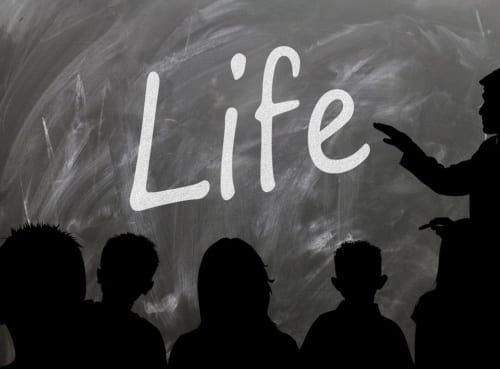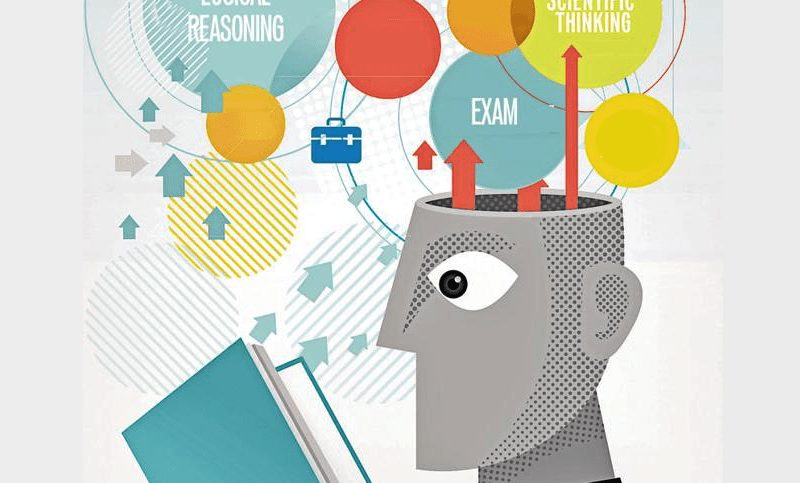https://vimeo.com/232540489
The world of assessment and accountability is getting interesting
To say that Theresa Morris is a leading voice in the world of assessment and accountability would be an understatement. She is a mathematics performance assessment developer at the Stanford Center for Assessment, Learning, and Equity (SCALE) in Palo Alto, California. She has many years of classroom experience as a teacher, as well as a background in school administration.
I met Theresa recently at a Texas Performance Assessment Consortium (TPAC) meeting, and she agreed to do an interview. She remarked how our present educational system in America was built during a time when there was a focus on producing skilled factory workers. The world has changed since that era, and we need to shift our ways of teaching and learning to reflect the jobs and opportunities of our modern society.
Multiple choice standardized tests, she says, are no longer the answer. Her work with TPAC reflects a shared interest among member districts in Texas who recognize that change is necessary and are looking for a more rounded, holistic way to achieve accountability and equity in education. In a world where students have a device in their pocket that can access an endless amount of information, Theresa is working to create a learning environment that measures students by how they problem solve, communicate, reason and find solutions to the challenges they face.
This interview originally published in the Huffington Post
Interview Transcript:
Dr. Berger: Theresa, it’s really nice to be spending some time with you today. I had the privilege of briefly meeting you at the most recent TPAC (Texas Performance Assessment Consortium) meeting in Texas.
What’s really interesting is that you were working there (at TPAC) and I know that you’re also part of the Stanford Center for Assessment, Learning, and Equity. With that as the backdrop, tell us a little bit about your participation in TPAC and the valuable conversations and contributions you see coming from a working group of this nature.
Theresa Morris: TPAC started with the idea that they want to revolutionize accountability systems within education. The A through F grading model that’s commonly used across the country doesn’t give a complete picture. It’s often slanted or skewed, if you will, towards school districts with high affluence.
If you already have students coming into your districts who are high performing, obviously, you’re going to meet the state’s standards. But it doesn’t show the full picture of growth achievement along the way and moving students beyond where they are.
There’s a shift in Texas of creating a community-based accountability system coupled with the idea that you cannot measure everything you possibly would want to measure through a multiple choice exam.
 We already know that. We’ve been using them across the country because they’re efficient. And, for most people, they attribute to them some level of reliability. Either the students chose C or didn’t choose C or knew to guess C or what have you.
We already know that. We’ve been using them across the country because they’re efficient. And, for most people, they attribute to them some level of reliability. Either the students chose C or didn’t choose C or knew to guess C or what have you.
But it doesn’t get down to that true level of a student’s ability to see and recognize a unique situation- to problem solve, analyze, and then respond to that situation- whereas a performance assessment gets to that level. It (TPAC) gives that balance between performance assessment and looking at the actual pieces of real-life applications and “Can a student problem solve, communicate, reason and promote a solution?”
DB: Theresa, is this a product of our inability ─ I say that collectively as the entire ecosystem of education in the U.S. ─ to appropriately and in an ongoing fashion to communicate the learning that’s authentic to the student learner experience back to parents and those in the community on a regular basis? Is this where we’ve come because we’ve not done that with intention, that we’ve said to ourselves, “Since we don’t have that communication we need to find a level of accountability that is tied to something?” And that something has been, to this point, standardized tests?
TM: That is an excellent question. And my response to that would be we, as a nation, have an inability to understand how education needs to evolve and needs to continue to evolve with our society.
From that point of view, it used to be a multiple choice test-measured knowledge. That was its purpose because we didn’t have Google; we didn’t have easy access to information. That was all we were testing for.
We no longer need to test that information. We need to know “Can students decipher a great deal of information and learn how to deal with it?”
So it’s an inability to understand the shifts in education, the understanding of what it means for a student to process information and respond, and ─ as you said ─ that connection in being able to relate back to teachers, students, parents, and community members what are students learning and how they are progressing.
Because of that inability, we pigeonhole schools, teachers, and students into believing that they’re achieving or not achieving based on some made up number and some fixed asset that really is irrelevant and disconnected to what happens in real life.
DB: And don’t you think that we should do a better job of aligning the ownership of learning?
I have two young kids, and they’re going to grow up like many other kids in the country thinking about being an entrepreneur or working with many different groups and companies. And so, in that, there’s an ownership, an agency if you will.
And shouldn’t we, then, apply that in a way in which we ─ I hate to use the term ─ “evaluate” or “observe” learning that we give the student an opportunity to contribute their own voice, their own assets, their own collateral that says, “This is what I learned and how it applies to me as a student moving forward” and connect those dots for them but put them in the driver’s seat?

TM: Put them in the driver’s seat when it’s appropriate. You have two young children. They’re going to be motivated on their own or they’re going to be lackadaisical on their own; and, at different times in our lives, that happens.
In education, I do think that you need the ownership with the students equally with the teachers and parents. It’s a trifecta that’s necessary because at eight years old, I’m not going to eat my vegetables unless you motivate me to do so.
Education is the same way. Additionally, we have this phenomenon in education that states “I’m going to tell you what you’re going to learn today. You’re going to learn it and then you’re going to decide if you actually learned that item.”
Here’s the flaw in that. What if a student actually had this major discovery on a different learning outcome than what was intended?
But that student is deemed as failing in learning the specific outcome that was stated. So, now, the student has a failure experience when, in reality, there was a successful moment.
We fail to capture it completely and ─ worse ─ we do damage by highlighting the fact that the student didn’t learn what we intended them to learn.
Learning is not linear. And, in many cases, I know it’s a national debate but it’s a communication, and students’ brains are hardwired differently. We have to capitalize on the moments when we have them and acknowledge that, in the course of 12 to 13 years, “This is where we want you to be when you graduate.”
We all might move at different speeds and at different times throughout that continuum, and that should be allowed ─ back to your piece of ownership with the students, teachers, and parents.
DB: Where does equity fit into this conversation?
TM: It always needs to be in the center and the forefront. Particularly for students who enter with what we call the “greatest distance from success.” Perhaps, their preschool years or their birth-to-five-years period set them behind through their counterparts who have had different experiences and exposures, or any of the different reasons why students have this greater distance from success.
Being able to acknowledge that students are moving at a pace that’s appropriate for them and towards a goal that they choose is necessary; and how we engage students ─ as you’ve said ─ in motivating themselves, identifying their learning trajectories, and continuing to push forward all the time is absolutely necessary; and it’s something, at the moment, that our educational system doesn’t embrace to the level which it needs to.
DB: If you’re reading the tea leaves and you see stories ─ not just in Texas but around the country ─ with districts and schools basically taking a stab at a new version of a report card or getting rid of report cards or looking at ways to eliminate class rank, what role do those elements play in the larger discussion that we’re having around equity and finding new ways to assess student learning?
 TM: I think each of these individual groups that are working ─ I’m currently working in Texas, Ohio, Southern California, and Virginia ─ has, in the forefront, this idea of how to incorporate performance assessments within an accountability system. The reason they’re doing that is to give students a greater opportunity to demonstrate their learning and their growth within the school year. Independently, each of them is a proof point of different approaches that can lead to successful changes in education and, most importantly, to teaching and learning.
TM: I think each of these individual groups that are working ─ I’m currently working in Texas, Ohio, Southern California, and Virginia ─ has, in the forefront, this idea of how to incorporate performance assessments within an accountability system. The reason they’re doing that is to give students a greater opportunity to demonstrate their learning and their growth within the school year. Independently, each of them is a proof point of different approaches that can lead to successful changes in education and, most importantly, to teaching and learning.
So we need to see and really closely follow the different groups and organizations that are trying to make reforms. Let’s share lessons learned and successes and try to find what we used to call the “path of least pitfalls,” if you will, for other schools, states, and districts to follow the same lead.
DB: I appreciate that. Theresa, let’s close with this. What question are we not asking as we’re sitting down as a part of multiple states’ efforts in this area? What question are we not asking that we need to be asking because we understand that there’s not only an uphill battle but a political battle that is life and at stake for everybody?
TM: What we’re not asking is “Where are the jobs of the future? What are we trying to prepare students to do in our future?”
Our educational system was created to prepare students for factory work. Let’s acknowledge that. They did a nice job of that.
But, now, let’s hone in on where our students are going in the future and how we’re going to support skills, knowledge, and abilities to meet those needs for all students.
Let’s also embrace this piece. We went to this college and career readiness phase and everyone is for that, in theory. But, in reality, I want productive citizens who are also plumbers, electricians ─ skilled trades. Let’s honor and respect their contributions to society and not look at them as failures or Option B because they didn’t go to a four-year college.
DB: It’s a clear and present danger and/or opportunity depending upon the way we look at it. I hope this is the first of many conversations. Your passion for your work comes through in your voice and I really appreciate the time.
TM: You’re very welcome. Thank you for the time.
Theresa Morris is a Mathematics Performance Assessment Developer at the Stanford Center for Assessment, Learning, and Equity (SCALE). She has over 20 years of experience including classroom teaching, district administrator, and consultant for CTB, Smarter Balanced and Discovery Education as an item writer and author of performance tasks. Her classroom experience includes all grade and ability levels from kindergarten through graduate level courses.
The focus of her recent work with SCALE has been supporting district-based performance task development, supporting the creation and implementation of curriculum-embedded performance tasks aligned to CCSS, and developing resources and professional learning experiences for educators to support the instructional shifts necessary for students’ deeper learning and college and career readiness.
Theresa is a lead facilitator in supporting state and local educational networks in building balanced assessment systems that include the use of performance assessments. The foundation of this work is building educator assessment literacy around the development and use of high-quality performance assessments.
Author
Dr. Berger is one of many industry education correspondents for the Mind Rocket Media Group, An educator and former school administrator. His video interview work and conversational podcasts have been featured in various media outlets. He often hosts education panel discussions and develops strategic content. As an academic Dr. Berger is a guest lecturer at Vanderbilt University’s Owen Graduate School of Management. A former assistant principal, he has been an adjunct undergraduate professor and developer of online college courses. He is a passionate Detroit sports fan who has also adopted Nashville sports teams as his own.
Contact the Mind Rocket Media Group if you are interested in an industry interview and a placement on EdCircuit.
Further Reading
- The Baltimore Sun – Less than half of Maryland students pass English, math assessments
- Hartford Courant – Middletown Schools Open With Emphasis On Equity
- Sooke News Mirror – Tech used to track West Shore students’ progress
